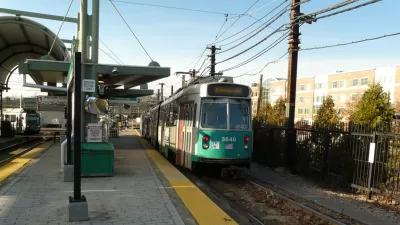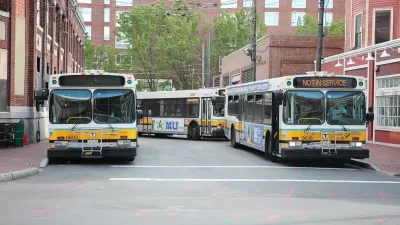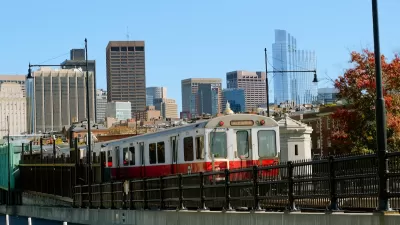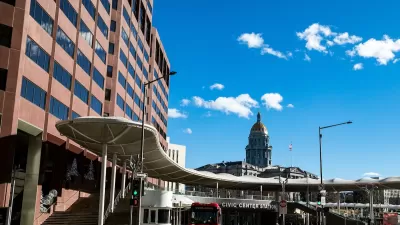Private companies involved in Boston and Denver rail travel are facing increasingly large fines for service failures, and some are going unpaid.

Many different organizations need to work together to make public transit work well, and cities provide financial incentives to make sure these organizations provide the best service possible, reports Daniel C. Vock for Governing. "But it hasn't been working in Boston and Denver lately, where the private companies running both regions' commuter rail lines have faced hefty fines for structural problems," Vock writes.
In Denver the city has been forced to hire additional personal because of technical issues. "The problem is with the crossing gates -- they stay down too long. Flaggers have been hired at crossings to make sure impatient drivers and pedestrians obey the gates and don't go around them," Vock reports. The city has looked to pass these costs back to its supplier.
Boston has also faced issues with Keolis, the company under contract to run rail transit there. "The biggest controversy has been about the fines the company hasn't paid. The Boston Globe recently reported that MBTA waived $839,000 in fees incurred for widespread problems on Keolis’ commuter rail service during the winter of 2015," Vock says. These fines were waved because of the extreme weather the city faced during that winter, but other fines continue to mount for the company.
FULL STORY: Private Companies Face Big Fines for Commuter Rail Problems

Study: Maui’s Plan to Convert Vacation Rentals to Long-Term Housing Could Cause Nearly $1 Billion Economic Loss
The plan would reduce visitor accommodation by 25,% resulting in 1,900 jobs lost.

North Texas Transit Leaders Tout Benefits of TOD for Growing Region
At a summit focused on transit-oriented development, policymakers discussed how North Texas’ expanded light rail system can serve as a tool for economic growth.

Why Should We Subsidize Public Transportation?
Many public transit agencies face financial stress due to rising costs, declining fare revenue, and declining subsidies. Transit advocates must provide a strong business case for increasing public transit funding.

How to Make US Trains Faster
Changes to boarding platforms and a switch to electric trains could improve U.S. passenger rail service without the added cost of high-speed rail.

Columbia’s Revitalized ‘Loop’ Is a Hub for Local Entrepreneurs
A focus on small businesses is helping a commercial corridor in Columbia, Missouri thrive.

Invasive Insect Threatens Minnesota’s Ash Forests
The Emerald Ash Borer is a rapidly spreading invasive pest threatening Minnesota’s ash trees, and homeowners are encouraged to plant diverse replacement species, avoid moving ash firewood, and monitor for signs of infestation.
Urban Design for Planners 1: Software Tools
This six-course series explores essential urban design concepts using open source software and equips planners with the tools they need to participate fully in the urban design process.
Planning for Universal Design
Learn the tools for implementing Universal Design in planning regulations.
City of Santa Clarita
Ascent Environmental
Institute for Housing and Urban Development Studies (IHS)
City of Grandview
Harvard GSD Executive Education
Toledo-Lucas County Plan Commissions
Salt Lake City
NYU Wagner Graduate School of Public Service





























